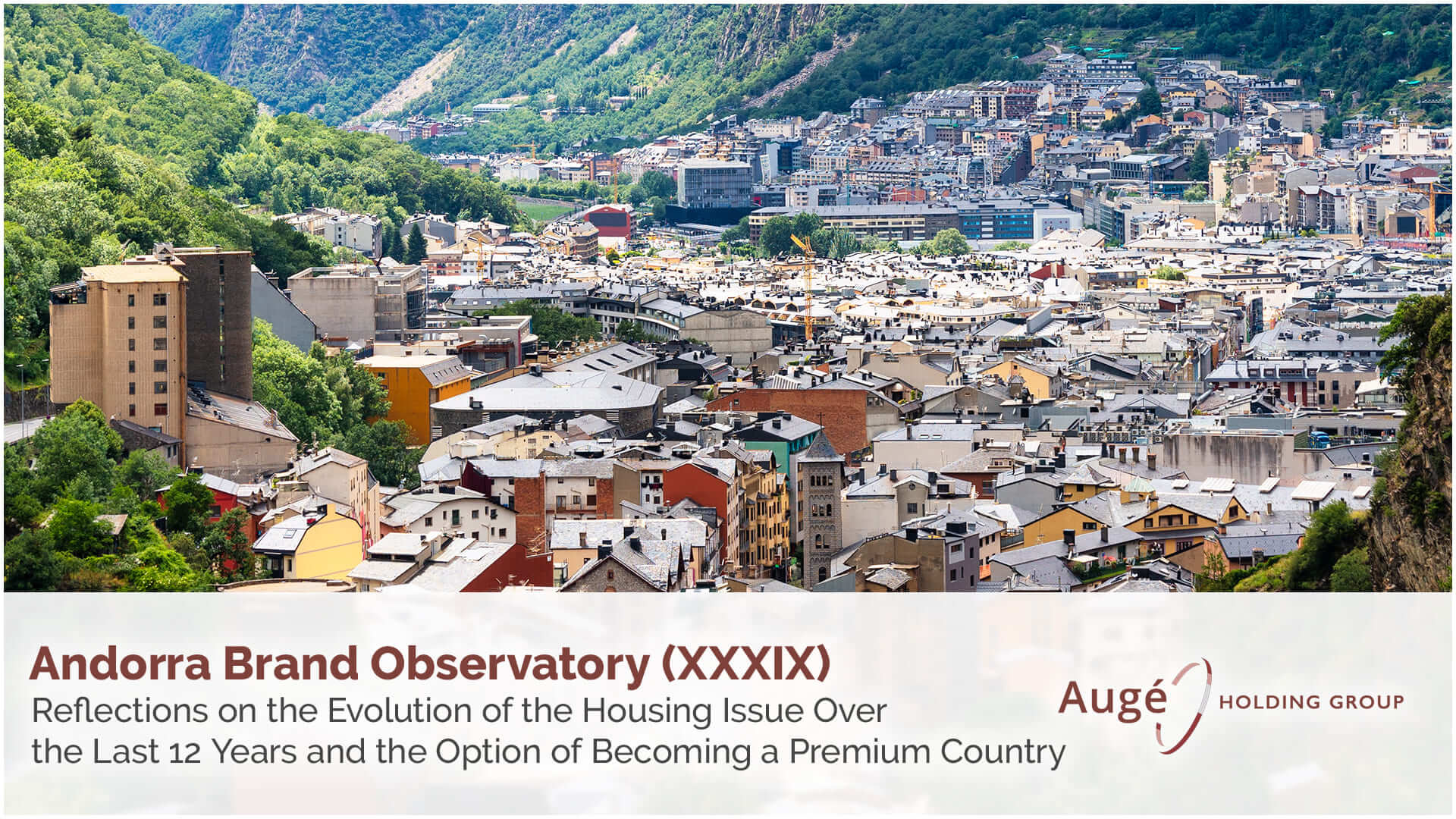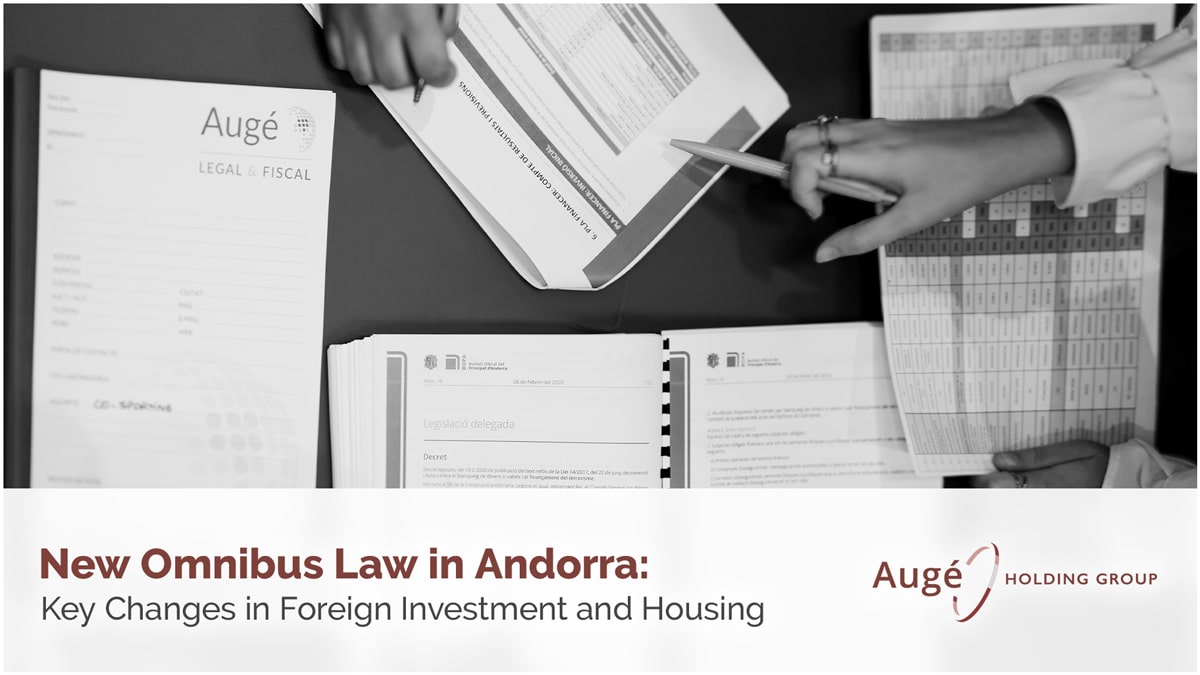“(…) what has really been lacking is the drive, on the part of successive governments and private initiatives, to develop a clear strategy to address the lack of affordable housing.”
Recently, ACODA, through its President, announced the arrival of a new construction crisis within a maximum of 2 years, as a result of the crisis in neighboring countries, Spain and France, which seems to have begun and will soon be felt in Andorra. At the same time, it linked this to the potentially aggravating effects of the future omnibus law and urban planning moratoriums.
Indeed, it is entirely true that construction in Spain and France, and also in parts of Europe, has stagnated and even declined since 2023, and the trend does not seem to be changing in early 2024. As a result, this also affects housing sales, which have recently dropped by double-digit percentages. Of course, on the one hand, inflation had to be combated, and the usual mechanism is raising interest rates. Well, the sharp rise in rates, 4 percentage points in one year, has made access to bank credit much more difficult due to the high costs involved. In France, for example, the average citizen’s purchasing power has dropped by 25%. How could this not affect the real estate market? This cost increase obviously also discourages real estate developers who rely on credit.
Additionally, in Spain, a phenomenon similar to that in Andorra is occurring, where far fewer homes are being built than the population needs. In fact, Spain is the European country that builds the least in proportion to its population’s needs. In this case, we have indeed caught the neighbor’s ailment!
Traditionally, and on this point, I agree with ACODA, it is most likely that the neighbor’s crisis will reach our country 2 years later. We have distant examples from the crises of 1992 or 2007, but based on my knowledge of the changes Andorra has undergone in recent years, I would dare to say that this time Andorra could distance itself from the effects of the crisis in neighboring countries, were it not for our insistence on provoking the crisis ourselves when there might be other solutions much more suited to the country model we are today and the potential we have, even if we are not fully aware of it.
Generalizing in matters such as construction or housing generates statistical data, but sometimes it is necessary to delve into the details of how, from the most general data, we can arrive at the divergence of opposing or disparate realities. And precisely, my goal in this article is to reflect on how to address different realities and make them compatible with the country’s progress, without harming some to benefit others.
That Andorra had a problem with the lack of affordable housing has been known for years, as many or more than the years we’ve been extending the duration of rental contracts, currently until 2027.
That Andorra, in the last 12 years of economic opening, has seen urban development that has encouraged more high-end projects than affordable housing, among other reasons due to the growing demand from new residents and qualified investors with high purchasing power, is an undeniable reality.
That in the same 12-year period, no strategic initiative has been pushed forward to solve the problem of the lack of affordable housing for the vast majority of the country’s population is also evident.
That we should not confuse the real estate development business with construction, and that the choice of the housing model promoted derived from the new market demand and the drive of local developers’ projects is also clear. Therefore, ACODA and its members have nothing to do with the trends of the real estate business model in the country, placing them in an obviously vulnerable position.
Therefore, what has truly been lacking is the drive, on the part of successive governments and private initiatives, to develop a clear strategy to address the lack of affordable housing. What is important to emphasize is that the development of private real estate initiatives aimed at a potential medium or high-income clientele is perfectly compatible with the development of public-private initiatives aimed precisely at solving the problem of access to housing for those who find it most difficult, due to insufficient purchasing power.
And now, as the international crisis is looming, “the great solution” arrives, an omnibus law in which even its own promoters do not fully believe, as further rental contract extensions beyond 2027 are already being announced, anticipating the likely failure of the law to achieve its goal of putting several thousand rental homes on the market within three years, among other measures.
The opposition is mistaken in thinking that the remedies promoted by the “omnibus” will solve the housing problem on their own, and the government is mistaken in trying to please and neutralize the opposition by promoting an implausible reform in which it doesn’t even fully believe. In fact, given the climate of tension and confusion on the streets, I would venture to say that no one truly believes the country will succeed with the “omnibus solution.”
In contrast to the more than likely negative effects of this so-called solution, one could argue that the country’s productive economy cannot stop, harming different economic sectors such as construction, which represents 20% of GDP and 13% of the wage bill, to benefit, we still don’t know exactly whom, as no one has taken the time to conduct rigorous studies on the real need for affordable housing in the country. This does not mean the problem is not real, because it is, and very much so!
Common sense dictates that driving an economic model of a “Premium country,” which enhances the attraction of talent, qualified foreign investment, and higher-quality tourism, which promotes new and innovative infrastructures and business models, and which helps to increase the purchasing power of the vast majority of our population, is not incompatible with solving the problem of access to housing for those who need it most. This can be done through a public-private strategic plan that, encompassing the entire Andorran territory, develops a national urban project leading to social balance based on the redistribution of population, services, and infrastructures, further improving the quality of life for our present and future citizens.
In fact, let’s be clear, why can’t we truly be a “Premium country” where an overwhelming majority of the population has enough purchasing power to fully participate in this new national strategy for housing access and enjoy the best services and infrastructures? And from this state of well-being, could we not derive a renewed sense of belonging that makes us proud to be part of this country and allows us to forever forget these sad moments of indecision, lack of vision for the future, and absence of leadership?
And let my words not be mistaken for a criticism of the current government or its predecessors, because in the end, those who govern us are only a reflection of the society that elected them. Indecision, lack of vision for the future, or absence of leadership is born from each of us, including the private sector, as we are the primary responsible. It is very easy to blame politicians and leaders, but what about us? Do we not have initiative? Do we not have any strength as citizens? When we discover that we do, we will see that the solution starts with each of us, and that a growing composition of wills can do much to build the strongest solutions for the future of a country that can become Premium for everyone if we decide to do so!





